Summer 2021
MIT Staff Council | Cambridge, MA
In summer 2020, twenty-three Massachusetts Institute of Technology (MIT) faculty members with environmental commitments and interests met in virtual Council sessions over five weeks. The Council format was replicated for thirty-eight staff members in winter/spring 2021 and summer 2021 (participants below). Based on the overwhelmingly positive feedback from participants, MIT is planning additional Councils for staff and faculty, as well as forming a Steady Council to continue conversations for those who have participated in Council circles.
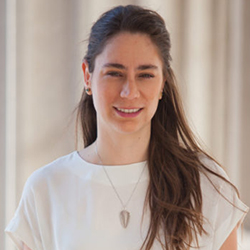
Marcela Angel
Marcela Angel is Research Associate at ESI, where she conducts research in environmental planning and sustainable development, leveraging technology development and data analysis for community-based planning. She serves as the manager for the Natural Climate Solutions (NCS) Program, a collaboration among researchers,government, environmental planning authorities, and community groups, among others, aimed at designing, executing and disseminating innovative low-carbon and regenerative development models to mitigate climate change, conserve biodiversity, and reduce environmental risk, while generating local economic development and prosperity for communities located in vulnerable ecosystems in Latin America. Her previous work at MIT´s Department of Urban Studies and Planning includes the development of spatial analysis tools and qualitative research to make the distribution of ecological services from green public spaces more equitable in urban areas. Marcela has a Master of City Planning (MCP´18) from MIT and a Summa Cum Laude B.A in Architecture from Los Andes University in Bogotá, Colombia.
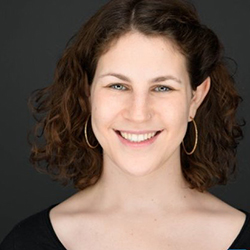
Sharon Bort
Sharon Bort serves as the Senior Officer for Solve’s Sustainability Community, which focuses on topics such as energy, environment, climate change, agriculture, and water. She brings deep enthusiasm for sustainability to Solve, where she cultivates new partnerships between innovators and leaders around the world to find, scale, and supportsolutions to sustainability challenges. Before joining Solve, Sharon worked as HR Manager for Hubway, Metro-Boston’s bike share service. Prior to Hubway, she worked as Sustainability Coordinator for Wellesley College. Outside of work, Sharon is an avid traveler, cyclist, podcast listener, gardener, and baker. She is also involved in her local community as an organizer for the MIT Waste Alliance and the Riverway Project. She holds a BA in Global Environmental Studies from Clark University and an MBA in Sustainability from Antioch New England University.
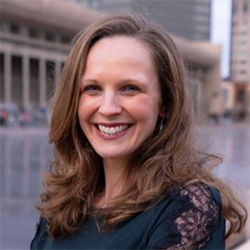
Molly Chase
Molly Chase leads communication strategy for the MIT Climate & Sustainability Consortium (CSC). She oversees all digital media, including website, social media, and video, as well as e-mail communication, media relations, content creation, and event promotion. Prior to joining the MIT community, Molly worked at Northeastern University, where her communication and marketing efforts directly supported enrollment and fundraising goals, as well as helped to foster a sense of community among faculty, students, and alumni. She led a small but mighty team that produced news content and newsletters, managed social media accounts, placed advertisements, and hosted events. Molly is passionate about bringing people together, looking at projects through a creative lens, and finding innovative solutions to any and all communications challenges. She holds a Master of Science in Organizational Communication from Northeastern University and a Bachelor of Science in Public Relations from Boston University.
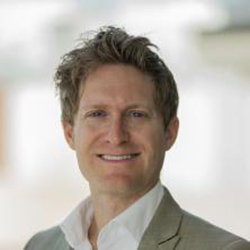
Brian Goldberg
Brian Goldberg is the Assistant Director for MIT’s Office of Sustainability (MITOS). Since arriving at MIT in 2016, Brian has been leading MIT’s campus-wide collaboration to enable an MIT that is resilient to disruptions from current and future climate risks. Brian is also responsible for helping MIT to design waste out of our systems by testing and scaling solutions that impact MIT supply chains, campus consumption behaviors and waste system processes. Core to these collaborations is how MIT leverages the campus as a test bed for demonstrating excellence in sustainability operations and research. Brian brings 17 years experience working with cities, communities, not-for-profits, non-governmental organizations and the private sector to optimize environmental and social benefits while mitigating risks. Brian’s perspectives come from urban and rural projects in the U.S., Africa, Asia and Australia. Prior to MIT, Brian spent a decade growing social responsibility and sustainability consulting for the engineering and planning firm AECOM (formerly EDAW), and previously worked for the United Nations, James Corner Field Operations and the New York City Parks Department. Brian was appointed Assistant Director in 2019 and is a LEED AP and AICP accredited environmental planner. He holds a Master of Environmental Management from Yale University and a B.A. in Political Science from Union College.
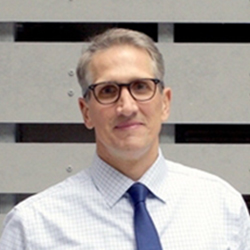
Joe Higgins
Joe Higgins was appointed MIT’s vice president for campus services and stewardship on November 1, 2019. In this role, he oversees the Office of Campus Planning; the Office of Sustainability; the Environment, Health, and Safety Office; and the Department of Facilities, including Campus Construction, Campus Services and Maintenance, Facilities Engineering, Utilities, and the Parking & Transportation Office. The Campus Services teams are responsible for designing, constructing, maintaining, and powering the MIT campus while advancing its accessibility, environmental safety, and sustainability. A registered professional engineer, Higgins holds a BS in engineering and a BA in economics from Swarthmore College, and an MSc in education research from the University of Oxford. Prior to joining MIT, he served for 10 years as vice president and head of engineering for Fidelity Investments, where he also served as Fidelity’s first corporate sustainability officer. Earlier in his career, Higgins held positions for 14 years as director of engineering and then as executive director of strategic and technical services at a Connecticut-based facility management company. In these roles, he provided strategic and engineering services to more than 100 academic and non-profit institutions for their building projects and broader campus sustainability initiatives.
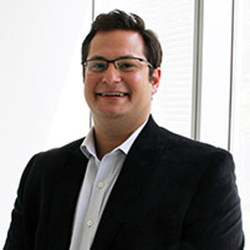
Ari Jacobovits
Ari Jacobovits is the Managing Director of the MIT-Africa Program at MISTI. He manages and co-designs programs for MIT students and faculty to intern, research, and teach in Africa by developing partnerships that advance the research, innovation, and education goals of Africa based organizations. Prior to joining MIT, Ari worked in international development, humanitarian affairs, and digital technologies in business development and operations management roles. Ari has worked at the US Refugee Admissions Program’s Africa field office and is a Returned Peace Corps Volunteer from Kenya. He holds a Master of International Business with a specialization in Development Economics from The Fletcher School at Tufts University and a BA in Journalism and Music from Indiana University – Bloomington.
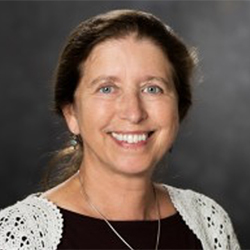
Bernadette Johnson
Dr. Bernadette Johnson is the Chief Technology Ventures Officer at MIT Lincoln Laboratory (MIT LL), an office established in 2018 to support rapid transfer of technologies of relevance to national security into and out of MIT LL. Previously she was the Chief Science Officer at Defense Innovation Unit Experimental (DIUx), which focuses on accelerating commercial innovation for the Department of Defense. Prior to joining DIUx (now DIU), she was the Chief Technology Officer at MIT Lincoln Laboratory. Throughout her career, she has been involved in a number of programs related to laser-based propagation and sensing, adaptive optics, active hyperspectral imaging, and laser-induced-breakdown spectroscopy. In the 1990s, she directed the Environmental Monitoring Project, which was established to adapt Lincoln Laboratory technologies to environmental-monitoring applications. In 2001, she became the founding Leader of the Biodefense Systems Group and in 2009 she led a study to develop a strategic plan for bioscience research at Lincoln Laboratory. Dr. Johnson holds a BS in physics from Dickinson College, a MS in condensed matter theory from Georgetown University, and a PhD in plasma physics from Dartmouth College. She attended the Harvard Kennedy School’s Senior Executives in National and International Security Program in 2015 and served as a member of the Naval Studies Board from 2012 through 2019.
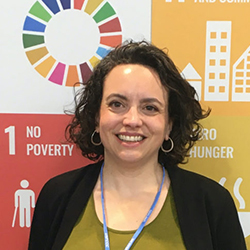
Sarah Meyers
Sarah Meyers leads ESI’s interdisciplinary environment and sustainability education portfolio of work. Working with both faculty and students, she focuses on ideas that serve those deeply engaged in global issues and those embedding sustainability in their “mainstream” practice. Sarah began her career as a high school math teacher, teaching in both public and private schools over the course of ten years. Later, she received a Sustainability Certificate as part of the MBA program at the MIT Sloan School of Management (’12), focusing her studies on aligning economic, social and environmental practices with business strategy. Upon graduation, she joined Wellspring Consulting, where she consulted to nonprofit and social sector organizations on business and financial management, strategic planning, operations and organizational design. Sarah returned to MIT to work at ESI in 2018, allowing her to come full circle. A native of California, Sarah enjoys paddle boarding, kayaking, whitewater rafting and hiking. She also enjoys playing piano and guitar, singing and dancing. She is proud to be the wife of Rabbi Daniel Berman and mother of daughter Elie and son Mica.
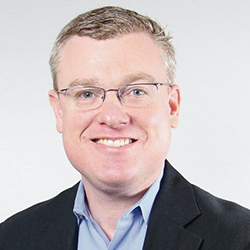
Stephen Oakes
As Media Relations Manager for MIT’s School of Humanities, Arts, and Social Sciences, Steve promotes research and insight by the Dean and faculty. In recent years he has expanded proactive outreach while developing methods for content development and media monitoring. Prior to MIT, Steve spent more than twenty years in non-profit, public policy, and corporate communications. He is particularly skilled in development and delivery of targeted messages to the right audiences. Steve has worked with companies including Dell, Visa, and Goldman Sachs. Steve is a graduate of Boston University, with a BS in journalism and a BA in international relations, magna cum laude.
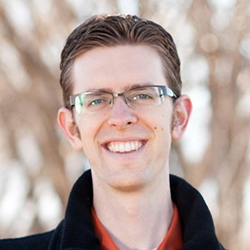
Scott Odell
Scott is a postdoctoral associate in the Metals, Minerals, and the Environment Program in MIT’s Environmental Solutions Initiative. His research focuses on the converging environmental and social impacts of climate change and mining on vulnerable communities. He holds a PhD from the Graduate School of Geography at Clark University. His dissertation examined the impacts of new community relations strategies and desalination operations on conflict over water between mining companies and communities in Chile, within the context of an unprecedented mega-drought. Fieldwork for the project was funded by a Grassroots Development Fellowship from the Inter-American Foundation. Scott has been a visiting researcher in the Center for Latin American Studies at Georgetown University and a resident tutor at Harvard University. He also worked on education and social policy as a program associate at the Inter-American Dialogue in Washington, DC. He received his bachelor’s degree in Science, Technology, and International Affairs (STIA) from Georgetown University’s Walsh School of Foreign Service.
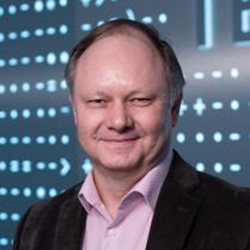
Sergey Paltsev
Dr. Sergey Paltsev is a Director of the MIT Energy-at-Scale Center, a Senior Research Scientist at MIT Energy Initiative, and a Deputy Director of the MIT Joint Program on the Science and Policy of Global Change, Massachusetts Institute of Technology (MIT), Cambridge. He is the lead modeler in charge of the MIT Economic Projection and Policy Analysis (EPPA) model of the world economy. Dr. Paltsev is an author of more than 100 peer-reviewed publications in scientific journals and books in the area of energy economics, climate policy, transport, advanced energy technologies, and international trade. Sergey was a Lead Author of the Fifth Assessment Report (AR5) of the Intergovernmental Panel on Climate Change (IPCC). He is a recipient of the 2012 Pyke Johnson Award (by the Transportation Research Board of the National Academies, USA, for the best paper in the area of planning and environment).
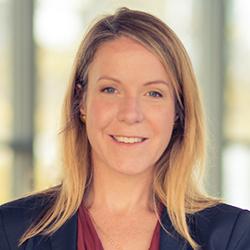
Bethany Patten
Bethany Patten is a Lecturer & Senior Associate Director of the Sustainability Initiative at the MIT Sloan’s School of Management. Her interests lay at the intersection of corporate and public policy, with a focus on environmental and social issues. She focuses on applying business practice theory to solve real-world challenges. As an experienced operational leader, Bethany develops relationships with public and private sector organizations, identifying the sustainability-related challenges they face. Through those engagements, she develops learning curriculum for masters-levels students, and teaches course sessions focused on problem formulation, continuous improvement, and change management for sustainability. She is responsible for the growth and quality of MIT Sloan’s Sustainability Certificate and other programming for students pursuing careers of environmental and social impact. She leads the Sustainability Initiative’s efforts to accelerate the move toward evidence-based climate policy. Bethany has been an active contributor across MIT, where she served on the Vice President for Research’s Climate Action Advisory Committee, co-authored the MIT report providing guidance on climate-related financial disclosures, and as a student at MIT, led the MIT Sustainability Summit and several projects on campus aimed at reducing waste. Outside of MIT, Bethany serves on the executive board of the Boston’s Bay Village Neighborhood Association, is an appointed member of the City of Boston’s Zoning Board of Appeals, and is Board Member and Treasurer for the Environmental League of Massachusetts. Prior to MIT, Bethany worked for more than a decade in business and financial operations in the book publishing industry. Bethany has her BA from Boston College in English and Women’s Studies and an MBA from MIT Sloan School of Management.
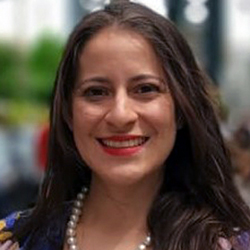
Andrea Cristina Ruiz
Andrea Cristina Ruiz (“Cristina”) is the Policy Manager for the Environment, Energy, and Climate Change sector at J-PAL Global at MIT. As part of J-PAL, Andrea Cristina works with policymakers and J-PAL affiliated researchers around the world to share insights from randomized evaluations and promote evidence-informed policy at the nexus of poverty reduction and the climate crisis. The sector also runs the King Climate Action Initiative, which evaluates innovative climate policies and technologies in the real world and, in partnership with policy makers, works to catalyze the scale-up of equitable and cost-effective climate solutions. Andrea Cristina is also a member of the Committee on Extreme Weather and Climate Change Adaptation for the Transportation Research Board with the National Academy of Sciences and is a ShelterBox response team member. Prior to J-PAL, Andrea Cristina managed environmental economics work for the Chief Economist office at the Port Authority of New York and New Jersey and held a variety of economic-focused policy positions with the World Bank Climate Change group, Miami Dade County Office of Resilience, and the Embassy of Ecuador in Washington D.C. Andrea Cristina holds a degree from Columbia University School of International Public Affairs and a B.S. in Economics from The George Washington University.
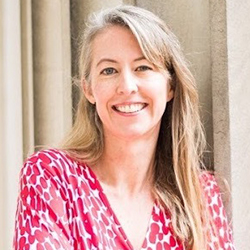
Kate Trimble
Kate Trimble is the Senior Associate Dean and Director, Office of Experiential Learning (OEL).Experiential learning exists in a myriad of places at MIT—in UROP labs, industry internships, public service projects, entrepreneurial ventures, and global studies; Kate plays a strategic role in guiding and advancing authentic, active learning throughout the Institute. She also directly supports the four centers within OEL (D-Lab, Edgerton Center, PKG Center, and UROP). She works with a wide range of Institute stakeholders—students, staff, faculty, and community partners — to help connect MIT students to challenging hands-on experiences that complement—and constructively complicate—their learning in the classroom. From 2016-19, Kate served as Senior Director of MIT’s PKG Public Service Center. Prior to that, she was the Deputy Director of the Swearer Center for Public Service at Brown University, where she also taught an engaged course on philanthropy and served on the University’s Title IX Council. She has been executive director of a non-profit community development corporation in Pittsburgh, a funder of neighborhood development initiatives, and a senior research analyst at the Brookings Institution in Washington, DC. Originally from Charleston, South Carolina, Kate graduated from Bard College with a (surprisingly useful) degree in philosophy and received her J.D. from Georgetown University Law Center.

